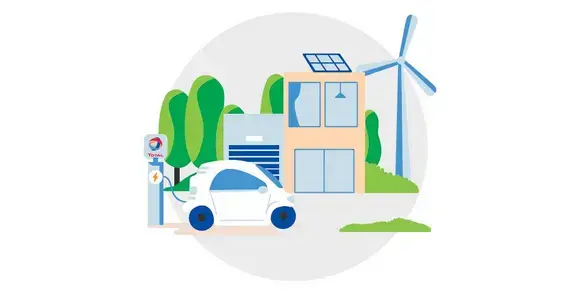
Quartz Ineo First 0W-30 is a "Fuel Economy" lubricant for light vehicle engines where 5W-30 is the viscosity grade. These are "energy saving" and therefore "fuel saving" lubricants. These lubricants are more fluid than standard mineral oils, without altering their quality of protection against engine wear.
The TotalEnergies Ecosolutions advantage
“Fuel Economy" engine lubricants help to reduce the engine's fuel consumption compared to a standard technology lubricant (identified as the market reference for light vehicles in Europe). Thanks to their optimized viscosity profile, Fuel Economy lubricants reduce friction responsible for energy loss and therefore reduce fuel consumption and greenhouse gas emissions.
The Environmental Performance
The environmental and health performance of Quartz Ineo First 0W-30 is evaluated by comparing it with Quartz Ineo Long Life 0W-30 oil (identified as the standard reference) for an equivalent service. For the functional unit lubricating an engine over a 1000 km journey with a light vehicle, we obtain:
- 1.69 % reduction in greenhouse gas emissions
Given the size of the market, the liters of fuel saved and consequently the GHG emissions avoided using TotalEnergies Ecosolutions lubricant represent significant environmental gains.
External External
Indepedendent auditor EY has verified that this product was labeled according to the method described in the TotalEnergies Ecosolutions Guidelines and that the guidelines comply with the principles set out in the ISO 14020 and 14021 standards which govern environmental claims and particularly their accuracy.
Additional information
- Label Award date: September 2012
- Label Renewal date: 2022 - Guidelines version 8
- Label Term: December 2026
- Geographical Scope: Europe

Approach & label
Ecosolutions program by TotalEnergies enables our customers to consume less and better.

Our Ecosolutions in brief
Learn more about the emblematic ranges of the Ecosolutions label by TotalEnergies.

Beyond the label : our complementary approach "Eco-Impact"
The Eco-impact approach is a new complementary and experimental pilot program, launched with the support of external stakeholders.